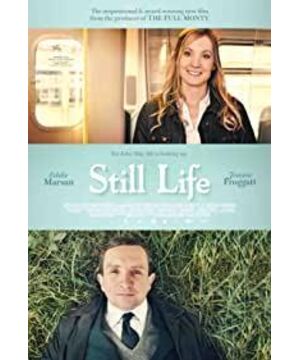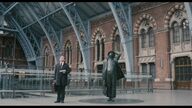Chapter1 Introduction - from the Frankfurt School
Adorno, a representative of the Frankfurt School, mentioned in Dialectics of Enlightenment:
"Nowadays, radio and movies no longer need to be dressed up as art, they have become fair trade. Art products as cultural products are not real art, but are produced as commodities to be sold in the market. ."
Here, I do not intend to make any criticism of the essence of contemporary culture, or to lament that people are more and more indulged in pure sensory stimulation. But it's undeniable that we're more and more wrapped up in a star-studded movie scene. The change in the creative style of the theatrical version of "Detective Conan" after "The Conspiracy on the Horizon" is a great proof of this era's criticism of Adorno's culture. But on the other hand, the improvement of the impact and expressiveness of the film is also a reflection of the progress of its production level - we do not need to criticize the phenomenon for extreme radicalism or even anti-intellectualism.
However, what is interesting is that when we put the perspective back to Europe, we may find that the Europa continent, the origin of modern film culture, that is, the origin of capitalist culture criticized by Adorno, still retains a large number of quiet And deep film work - yes, these two adjectives may represent the first impression of many viewers, including me, of European films (for the sake of accuracy, "European film" in this article basically excludes American productions. ).
Different from lively commercial films, if we examine a long list of European films, we may use the following words to describe European films: plot, thought-provoking, quiet, human, niche(?) and so on.
And the film we are talking about today, a true British film, largely represents my final impression of European cinema.
It's called "Still Life"
Chapter 2 Unknown strangers, I say hello to you
The film should begin with a "sacred and unheard of work".
The protagonist, John May, is an ordinary London community worker whose job doesn't sound so dignified: finding loved ones for the deceased who have died alone in his precinct. However, since the deceased is still alone when he is dying, it is not easy to find his relatives in the vast crowd, not to mention that these people basically refuse to have any contact with the deceased. Therefore, John's later task is to arrange a funeral for the deceased and let the deceased go to the ground in peace.
This job, John insisted for a full twenty-two years.
But one day, the job came to an abrupt end.
Government agencies were streamlined and laid off, and John lost his job. Maybe he felt wronged, maybe he felt dissatisfied, but he didn't express much dissatisfaction. After the leadership's steadfastness, John made his second-to-last request in office - to use the last three days to complete his last case at hand, the client's name is William Billy Stoke.
John embarked on a path to find his family, he visited Stoke's original unit, the prison where Stoke once stayed, Stoke's ex, the beggar who used to walk the streets together, the comrades who were born and died together, and - his daughter . He could choose to dispose of the ashes of the deceased in a simple and rude way according to the leader's wishes, but he did not. Instead, every time he found a deceased family member, he begged them to give Stoke a final ride at his funeral, but all rejected him before the story ended unexpectedly.
Finally, Stoke's daughter called and promised to attend her father's funeral. This is the biggest turning point in the story, and I had guessed that it heralded the happy ending of the story. In a dramatic twist, John dies in a traffic accident amid the elation that the final case has been successfully completed.
The whole movie ends at Stoke's funeral - of course, all of his friends and relatives mentioned above were there because of John's efforts, and John, who worked tirelessly, was buried alone. This is the end of the story.
Oh, by the way, John's last request before his death was to ask the leader to give the task a few more days of grace.
After all, this is not an easy task, and he proved this proposition with his life.
Chapter3 People can't bear their worries, but they don't change their joys
Part1 Standing between night and day
In fact, the character of John, even though he died laughing, was not happy in his life - even though he loved the job. How much do you love it? I didn't understand this detail until the middle of the movie. An old woman dies in her own house—probably John's penultimate case, and the most detailed in the film outside of the last one.
After receiving the news, the most important job for John to do is to go to the residence of the deceased. There, John needs to collect things that once meant so much to the deceased. In an age where mass entertainment is so rich, you can't imagine two people with exactly the same hobbies or interests. Therefore, it is foreseeable that John's work will be extremely challenging each time, because the items of the deceased may be completely different.
You might ask: what's the use of collecting these things?
Because John would write eulogy for the deceased.
At each of John's unvisited funerals, the priest would read a eulogy for the deceased, which might read: "Jenny Ford was born in 1945, when the light of peace came upon the earth. In these turbulent times, Mr. Ford was lucky to have such a lovely daughter, who grew up enjoying the warmth of a sunny beach, a simple but elegant necklace, a favorite flamenco, and her love for Suzy's love."
Obviously, when someone asks you to write a eulogy for a stranger you don't know, it's hypocritical to show your nib's most sincere affection. What John did was to lightly mend the years of a deceased person through his own observation in a short period of time.
We can't fathom the inner workings of John's 22 years of being alone at other people's funerals. But what we can be sure of is that when John examines the remains of the deceased and learns about the lives of the deceased, he slowly learns about them in the process. Perhaps, when he meets someone with similar interests to himself, he will briefly have the joy and recognition of "no one in the world knows the king", but it is limited to that. Because of the little luck that he met the so-called "confidant", he couldn't escape the sorrow of "the child died prematurely".
So we see that in a thick album in John's house, there are pictures of every deceased - carefully framed, lying quietly in it. I believe that in every night of whispering alone or a moment of private reflection, John's mind has the face of the deceased. This is not a horror story, on the contrary, this should be the exclusive spiritual wealth of John's life.
Part2 Just you again? -I afraid so.
The great thing about it all is that a lot of the work John does may not be necessary.
After being announced as fired, John watched the newly appointed female officials dump the urns that had been stored in twos into a dirt pit in a very "efficient" way - a place that should barely be called "" cemetery".
Yes, no one cares about the deceased: the children don't care about them and even hate them to the core. The accumulation of the ashes of the deceased has squeezed the government management resources... Maybe from another perspective, we may find that John's behavior is even unreasonable—— This is precisely the most important conflict of the film, and it is also the starting point for us to think about all its details.
During a burial, the master in charge of the geotechnical sighed perhaps unintentionally or intentionally:
"Just you again?"
To this, John's answer is:
"I afraid so."
We can fully imagine that in the past twenty years, perhaps countless others, even John himself, may have asked this question. There is no doubt that we cannot describe a sadder being than an unaccompanied passing away. At this point, John is undoubtedly a humanist, and he has left the last shred of dignity in the life of the deceased with almost irreplaceable persistence.
In John's day-to-day work, not only the bodies of the deceased are buried, but more importantly, their spiritual world rests in peace. This is not only reflected in John's record of the deceased's hobbies, but also in his religious beliefs - because the understanding of dust returning to dust is the most important life philosophy of all religious beliefs. John gave the greatest respect with a slow-moving attitude.
London won't cry over the passing of anyone in John's album, leaving John alone as the night watchman for these souls.
Chapter 4 A film in which the second male lead does not exceed two minutes
It is very interesting that William Billy Stoke, the most important character in the second half of the film, has almost no shots in the whole film. The main line of the story is driven by John's visit to Stoke's relatives and friends during his lifetime to learn about his experiences during his lifetime. That is to say, like a blind man touching an elephant, we follow John's footsteps and try to outline Stoke's whole picture through limited experience and cognition.
Let's take a look at what the whole line looks like first - John found a hat from a food processing factory in Stoke's photo, so he went to the processing factory to find a coworker who had been friends with Stoke. The co-worker sends him to find Mary, Stoke's former confidante. John learned from Mary that Stoke had a criminal record before his death. Based on this, John went to the prison at that time and the archives where Stoke's documents were recorded, and not only learned about Stoke's deeds, but more importantly, John found a letter from his daughter. Following the mailing address, John found Stoke's daughter. After some conversation, the daughter gave a photo of a Stoke comrade-in-arms. Of course, this "comrade-in-arms" has long been grayed and blind. After talking to his comrades, John's last stop was the beggars in the square, where he learned about the debauchery Stoke used to be on the streets.
The above paragraph has the feeling of stepping on the snow to find plums and willows and flowers, but in fact, this journey is more like a miniature version of all living beings. From different people, we gradually build up our understanding of the second male - he defies the rules but has a good heart; he is fierce enough to send a man who tries to molest his object to the emergency room, but at the same time he can endure physical pain And called on the charitable fundraising of the inmates; he lay drunk in the major squares and alleys of London, but he was once a soldier on the battlefield to defend the country.
It is very interesting that such a person, through the description of his close friends or close relatives, we cannot say exactly what kind of person he is. Or, what underlying factors in his character shaped such a contradictory life?
The film does not give an answer to this, but the impression of Stoke really happens in the hearts of the audience. Maybe at this moment, we all have a Stoke in our hearts. He may form a sociopath because of the trauma of the battlefield, or he may fight the law to protect his family...
Of course, all positive descriptions may be reversed. You can imagine a Stoke that fits all the above aspects, which is the charm of this show. Stoke himself never explained himself, he gave the right of explanation to all bystanders, including John himself of course.
Therefore, we can see that the main line of the second half of the film seems to be an imaginary construction of Stoke, but it can actually be understood as a reshaping of John's spiritual world.
During this series of family search trips, John expressed surprise or doubts many times:
John couldn't understand how someone could hang their teeth on a leash for nearly four minutes in order to organize a fundraiser.
John couldn't understand, a man who didn't sleep in London's famous squares.
John couldn't understand that someone who paralyzed himself with Woods whiskey might once have had a happy family and a lovely daughter.
John couldn't comprehend that the people he had visited, for whatever reason, refused to send them on their last journey, despite their differing recollections.
In contrast, John is actually a lonely, disciplined person. He is not good at cooking, so his life by himself is extremely simple, he never cooks, and canned food is the staple food. So Stoke's way of life is like parallel lines that never meet for John.
In the square, John drank a strong whisky. Choking cough.
From that moment on, he understood the world more, even though he was still alone.
The Chapter 5 film was shot by John May
We're going back to the subject step by step.
There is one word throughout the film - "Still". This feeling is everywhere.
In this movie, the London we see doesn't look like a million-person metropolis, without the hustle and bustle of Jackie Chan's "British Showdown", and without the rush of traffic and bells and drums. In the entire film, almost 80% of the time, we see John alone - even when he is talking to others. Under this arrangement of shots, the whole of London looks like a ghost town. Perhaps as I described John—the living dead standing between night and day—there is no difference between day and night in London here.
However, this film has a mood that complements stillness with movement. Mr. Lu Xun once said: "A man downstairs was sick to death, a family in the wall was singing a gramophone; on the opposite side was a child. Upstairs there were two people laughing wildly; there was also playing cards. There was a woman on a boat in the river crying about her dead mother ." When John came home, there was almost no sound, but we could vaguely hear in the background the intermittent sound of the TV, the siren from far and near, and the quarrel of the neighbors... these sounds Instead of arguing, it made us feel that John's place was quieter.
In my opinion, rather than calling this a trick, it's better to understand it as the world in John's eyes.
As I said before, John's life is nothing but loneliness, and his life is straight-forward, like Philia Fogg in "Around the Earth in Eighty Days". Therefore, in his eyes, the city of London may be so quiet. Having been on the brink of life and death for a long time, John's understanding of "silence" may have been embedded in life.
After a bottle of whiskey, there is a brief tumult in the movie scene, and that might be the moment John sees the world shaken.
Chapter 6 Treat every living method with awe
At the end of this movie, I don't want you to become vulgar "loneliness".
As I said above, everyone can have their own London in their hearts. This represents the perception of the world in a person's mind. George Mead said: Our understanding of the objective world is always different because our individual attention is different. The sense of loneliness in the world should come from inner stillness and awareness of experience, and should not be reduced to pessimism and a deep veil.
In fact, in the end, John's life is too quiet, and Stoke's life is too turbulent. But we can't come to the conclusion that the two people's lives were too hasty and lost the beauty of the other side. Because when we try to make the following judgments, we have used our own life experience to kidnap the worldview of others.
As we discussed at the beginning of the cultural critique.
In fact, whether it is a so-called European film or a commercial film by the opposite definition, this behavior is understandable. Our judgments based on experience are largely not out of the mold of the ego. There is no overwhelming difference between the two. In "A Quiet Life", there is not much rapid development of film visual technology (such as special effects, etc.), which can be understood as a kind of persistence, and can also be understood as a style. , but by no means an either-or critique.
In other words, A Quiet Life provides us with a script in which silence is set off by death and an understanding of being human is revealed. Essentially, the film doesn't focus on feeding us any formed values. On the contrary, it conveys more of an "outside the movie" experience, that is, the various thoughts we make in the blank space of the rolling subtitles after the end of the movie.
I believe that at that time it was all silent. At that time, we could sigh and think a lot. We look at ourselves in terms of the life experiences of the people in the show (which are complete in this film) - so writing at this point, it seems like I'm commenting on the movie, but I'm actually commenting on my own life.
I think that's the beauty of the movie.
View more about Still Life reviews











